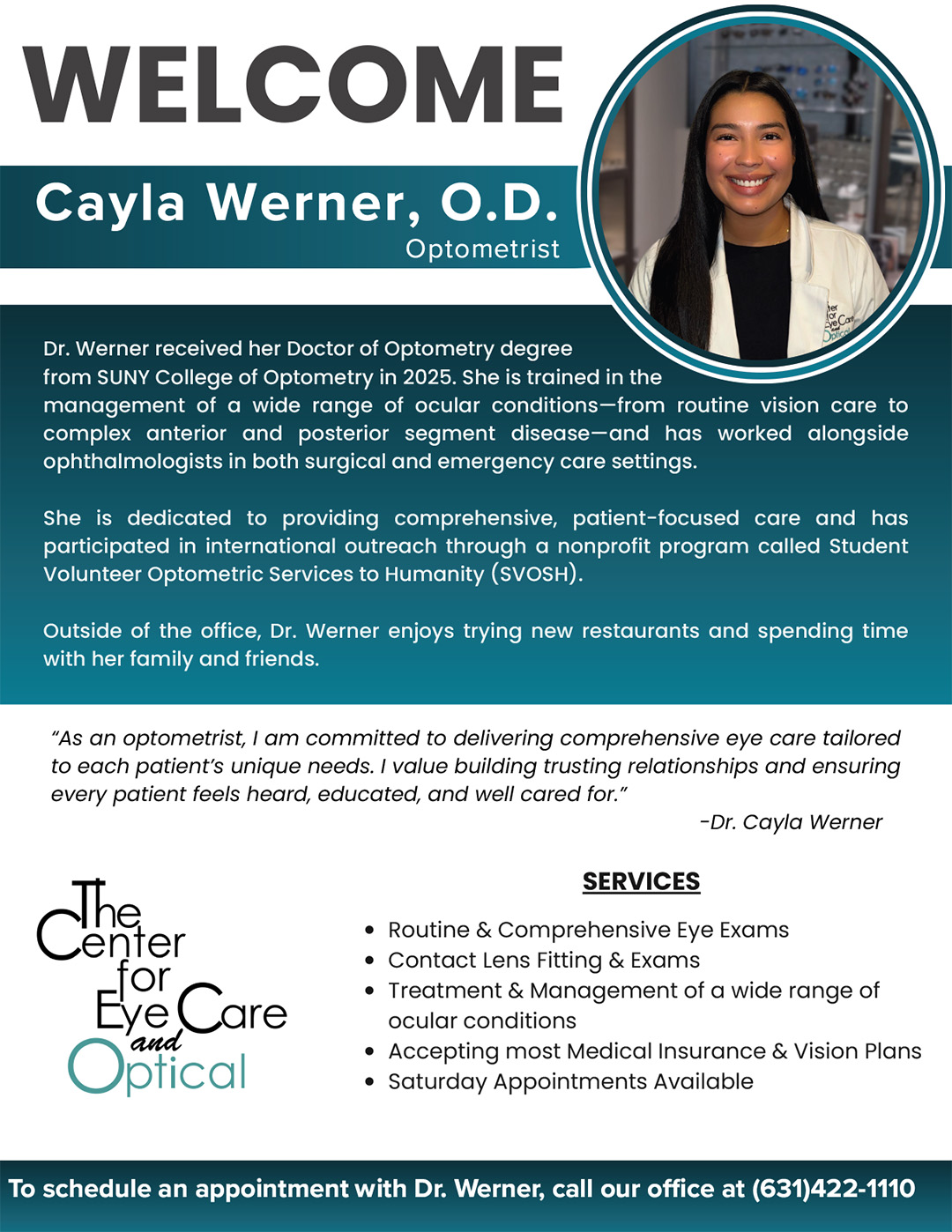People of all ages can develop cataracts, but they most commonly occur in adults over 40. A cataract is aclouding of the eye's natural lens, which lies behind the iris and pupil. Our optometrists at The Center forEye Care and Optical inWest Islip can perform comprehensive eye exams to check for cataracts andother eye health problems

What are the Symptoms of Cataracts
Cataracts usually develop slowly and painlessly, and many people don't realize they have them until their vision has become noticeably blurred. Other common symptoms of cataracts include:
Difficulty seeing at night
Double vision in one eye
Fading or yellowing of colors
Glare or halos around lights
Frequent changes in eyeglasses or contact lens prescription
What Causes Cataracts?
Most cataracts are age-related. As we age, the proteins in our eye lenses start to break down and clump together, causing the lenses to become cloudy. Other causes of cataracts include smoking, diabetes, certain eye injuries or diseases, and prolonged sun exposure to ultraviolet rays.
How Are Cataracts Treated?
Surgery is the only way to remove cataracts. Our eye surgeon will perform phacoemulsification, which uses sound waves to break up the cloudy lens so it can be suctioned out of the eye. An artificial intraocular lens (IOL) will then be inserted in its place.
How are Cataracts Diagnosed
During a comprehensive eye exam, your optometrist will check your eyes for cataracts and other eyeproblems. They will look at your eye lenses through a magnifyinglens to evaluate their clarity. A visionexam can also help rule out other conditions that may be causing your symptoms.
Why is it Important to Treat Cataracts?
If left untreated, cataracts will eventually cause vision loss. Vision exams can help catch cataracts earlybefore they cause significant damage. If you think you might have cataracts, schedule an eye exam withan optometrist or ophthalmologist. Early diagnosis and treatment can help preserve your vision
How Can I Prevent Cataracts?
There is no sure way to prevent cataracts, but there are some things you can do to lower your risk, such as:
Wearing sunglasses that block UV rays
Eating a healthy diet
Exercising regularly
Not smoking
Limiting alcohol consumption











